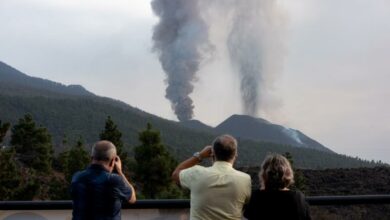Ecological disaster lurks on Peruvian seabed one month after oil spill

Ancón, Peru, Feb 16 (EFE).- The beaches and water along Peru’s coastline might look clean on the surface but the ecological consequences of an oil spill at a refinery that occurred one month ago are still very present in the deep waters of the ocean.
On January 15, 11,900 barrels of oil from La Pampilla refinery near Lima spilled into the Pacific Ocean, causing what the United Nations called the worst ecological disaster in Peru’s recent history.
Spanish oil firm Repsol, which operates the refinery and came under heavy criticism from Peruvian authorities, maintains that a slightly lesser figure of 10,300 barrels were spilled that day amid wave surges linked to the Tonga volcano.
The oil spill spread to at least 30 beaches north of Lima, killing animal species and disrupting the livelihoods of fishermen whose families depend on the ocean.
“At first, what caught the public’s attention was the impact on the penguins, otters and birds in the area, but the greatest concern is the oil that is still in the sea,” scientific director at non-profit organization Oceana, Juan Carlos Riveros, tells Efe.
While Repsol said on Tuesday that the clean-up operation was 76% complete, Peruvian authorities say less than a quarter of the barrels spilled have been collected.
“We have done a lot of recovery work, but only of what can be seen, there is a lot that we have not covered, there is a big task ahead of us and there is a lot of work and research to be done now,” head of the Ancón reserve, David Orosco, tells Efe.
The big task Orosco is referring to is bioremediation, a process to treat contaminated water and land by stimulating the growth of microorganisms to recover an altered ecosystem.
“Experience from other spills indicates that it is rarely possible to collect more than 25% of the crude oil spilled and among the 25% that has evaporated, 50% of it stays in the ocean water column and up in algae, plankton or on the seabed, which is then ingested by animals and molluscs,” Riveros says.
Meanwhile, hundreds of fishermen have been employed by Repsol for the clean-up operation.
“If we don’t fish for fish, we fish for oil,” fisherman Manuel Chapeyquen says.
“They have destroyed our ecosystem,” he adds.
Repsol says that all beaches and the sea will be clean by the end of the month but Riveros says it will take from six to ten years for a healthy ecosystem to be restored. EFE
pbc/mp/jt





